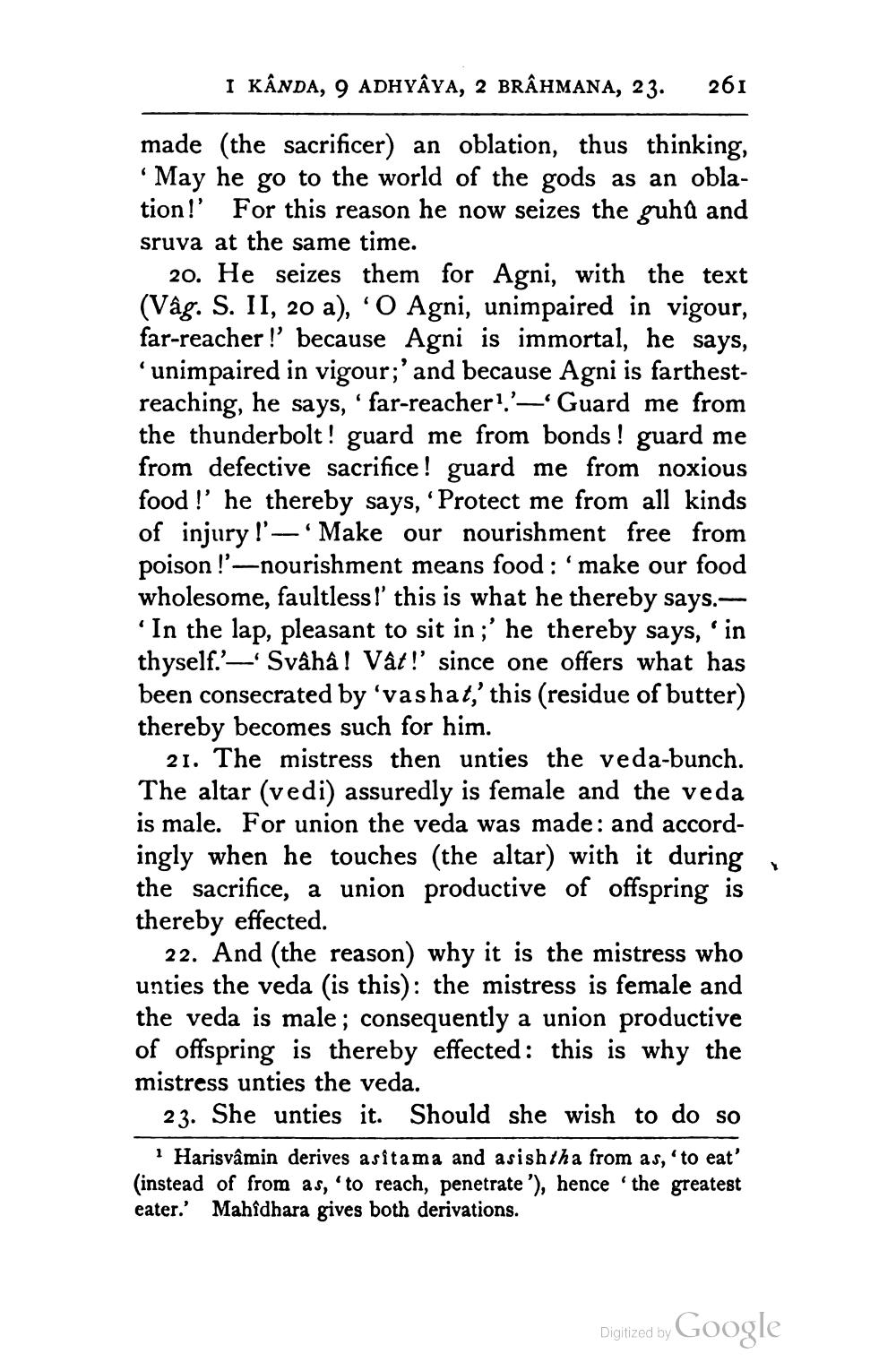________________
I KÂNDA, 9 ADHYAYA, 2 BRÂHMANA, 23.
261
made (the sacrificer) an oblation, thus thinking, . May he go to the world of the gods as an oblation!' For this reason he now seizes the guhů and sruva at the same time.
20. He seizes them for Agni, with the text (Vâg. S. II, 20 a), O Agni, unimpaired in vigour, far-reacher !' because Agni is immortal, he says, 'unimpaired in vigour;'and because Agni is farthestreaching, he says, 'far-reacher?.'—'Guard me from the thunderbolt! guard me from bonds ! guard me from defective sacrifice! guard me from noxious food !'he thereby says, 'Protect me from all kinds of injury !' -- 'Make our nourishment free from poison !'-nourishment means food: 'make our food wholesome, faultlessl' this is what he thereby says. 'In the lap, pleasant to sit in ;' he thereby says, 'in thyself.'— Svâhâ ! Vât!' since one offers what has been consecrated by 'vashat,' this (residue of butter) thereby becomes such for him.
21. The mistress then unties the veda-bunch. The altar (vedi) assuredly is female and the veda is male. For union the veda was made: and accordingly when he touches (the altar) with it during the sacrifice, a union productive of offspring is thereby effected.
22. And (the reason) why it is the mistress who unties the veda (is this): the mistress is female and the veda is male; consequently a union productive of offspring is thereby effected: this is why the mistress unties the veda.
23. She unties it. Should she wish to do so | Harisvâmin derives asitama and asishtha from as,'to eat' (instead of from as, 'to reach, penetrate'), hence the greatest eater.' Mahîdhara gives both derivations.
Digitized by Google




